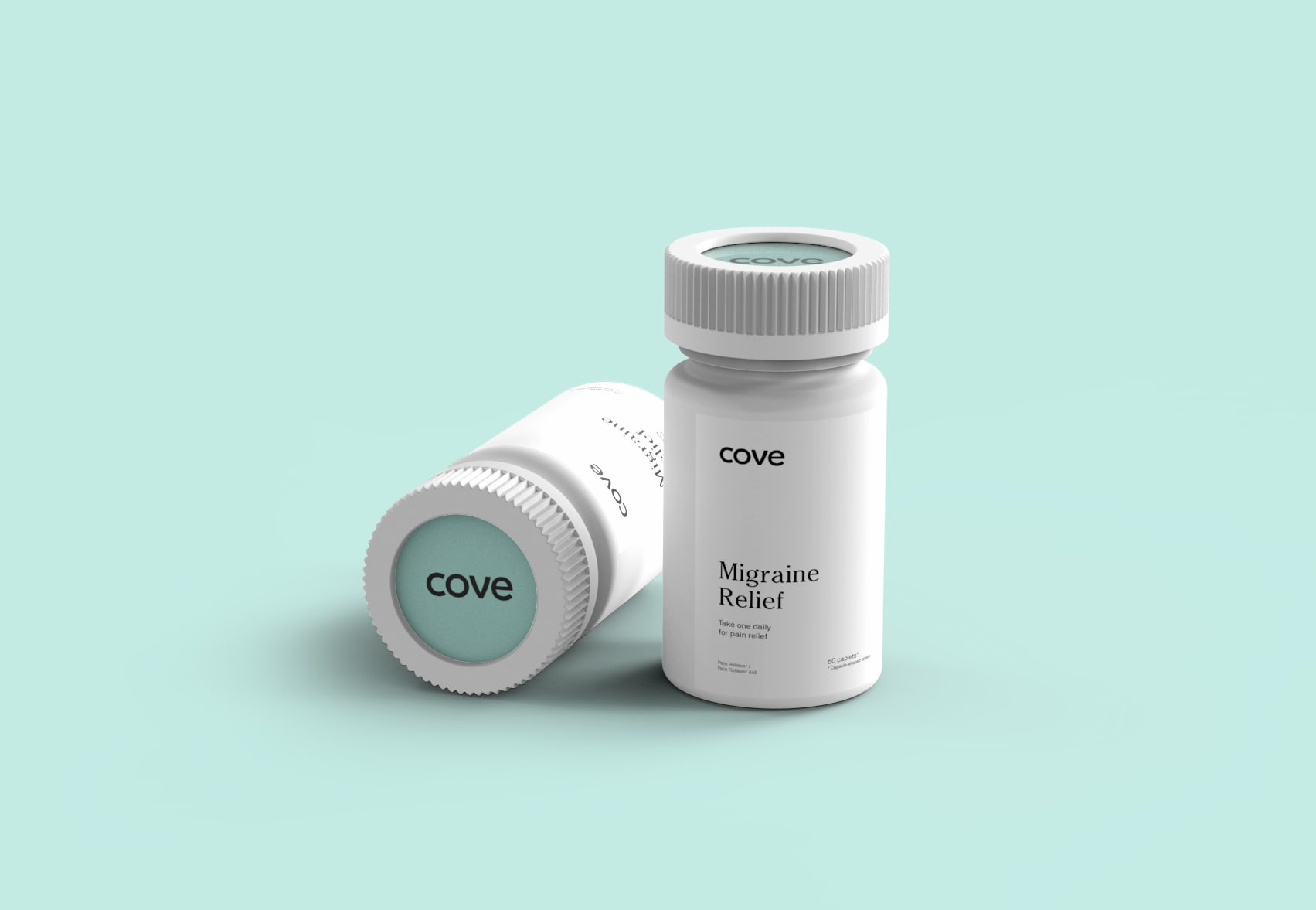What is metoprolol?
Metoprolol (which is generic Lopressor®) is a preventive prescription drug that can help reduce the frequency and severity of migraine headaches.
What will it do for me?
Metoprolol is a beta blocker that’s often used to treat high blood pressure, but can also act as a first line of defense when it comes to preventing your migraine attacks.
How does it help?
Migraine brains experience blood flow a little differently than others. There is often too much blood flow in the brain’s blood vessels, which leads to that infamous pounding feeling in your head. Metoprolol keeps things straight and narrow by possibly reducing that oncoming traffic to the brain. It can also increase electrical movement across the brain (things tend to slow down during a migraine attack).
How can I buy metoprolol?
Metoprolol is a prescription medicine so you’ll need to talk to your doctor first. Get started today with a Cove doctor consultation.
How should I take it?
Ideally, you should take metoprolol on an empty stomach. It helps to ensure that your blood flow remains stable and predictable.
What should I be cautious of?
If you’ve had any of the below, sound the alarms to your doctor before taking metoprolol for your migraine:
- asthma
- an allergic reaction to Propranolol or another beta blocker (hives included)
- diabetes (you’re currently taking insulin)
- heart arrhythmias
- heart failure
- low heart rate
- low blood pressure
- poor circulation or Raynaud’s Syndrome
Can I take metoprolol with other migraine medications?
You can take metoprolol with all migraine-specific preventive medications.
What happens if I can’t take it right away?
If you forget a dose, take it as soon as you remember to help maintain consistent prevention. Metoprolol is short-acting, so if you forget a dose, you may experience a temporary increase in your heart rate.
Where should I keep my metoprolol?
Keep it in a dry place at a cool room temperature.
Are there any side effects?
Metoprolol rarely comes with serious side effects, but if you do experience any side effects, you might notice:
- dad circulation in fingers and toes
- fatigue
- feeling sluggish
- lightheadedness
- slow heart rate
What happens if I stop taking metoprolol?
Because metoprolol works to slow down your blood flow, taking it for a long time can lower your heart rate and blood pressure. So it makes sense that suddenly stopping can cause your heart rate to briefly increase while your body readjusts.
If your heart is healthy, you might not notice any adverse effects if you stop taking metoprolol. However, it’s risky enough that it’s best to slowly cut back your dosage over time instead of just stopping altogether.
What other beta blockers are available?
Cove also currently offers propranolol.
Propranolol and metoprolol are used to treat high blood pressure and prevent migraine headaches. Do not stop taking these drugs all of a sudden. If you do, chest pain that is worse and in some cases heart attack may occur. The risk may be greater if you have certain types of heart disease. To avoid side effects, you will want to slowly stop this drug as ordered by your doctor. Call your doctor right away if you have new or worse chest pain or if other heart problems occur. You can read more about propranolol side effects, warnings, and precautions here. Full prescribing information for propranolol is available here. You can read more about metaprolol side effects, warnings, and precautions here. Full prescribing information for metoprolol is available here. You are encouraged to report negative side effects of prescription drugs to the FDA. Visit MedWatch: https://www.fda.gov/Safety/MedWatch/default.htm or call 1-800-FDA-1088.


